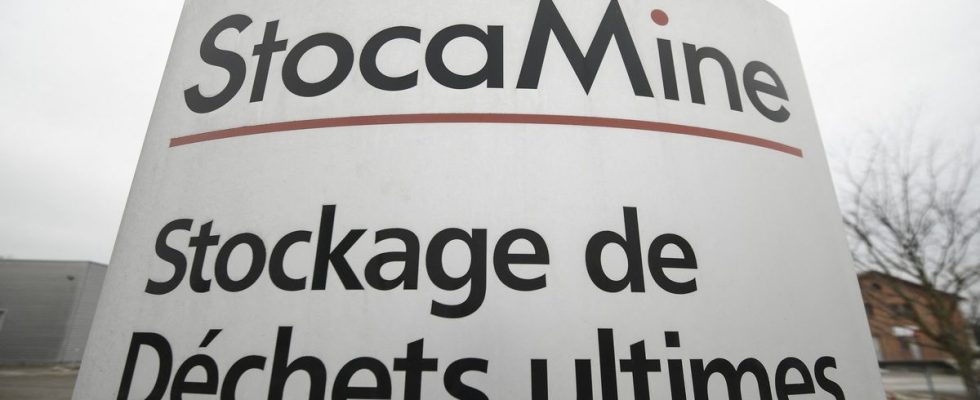Is this the end of the Stocamine soap opera? No doubt the State hopes so. The Haut-Rhin prefecture has authorized, by prefectural decree, the “unlimited” extension of the storage of 42,000 tonnes of hazardous waste at Stocamine, thus paving the way for the confinement of waste under concrete. And this, despite opposition from elected officials and the local population.
The decree was signed Thursday by prefect Thierry Queffélec. The storage of waste (mercury, asbestos, arsenic, etc.) in this former potash mine in Wittelsheim was initially presented as “reversible” and authorized in 1997 for a period of thirty years.
The company MDPA (Mines de Potasse d’Alsace), which manages the site and of which the State is the sole shareholder, is therefore preparing to relaunch work aimed at confining all of the waste under the concrete. The construction of the first dams had been suspended twice by administrative justice after appeals from the environmental association Alsace Nature and the European Community of Alsace (CEA).
More than three years of construction
The project must last 42 months, according to the prefectural decree, and mark the end of twenty years of procrastination. Since the fire of a block of waste, supposed to be non-flammable, in September 2002, the course of action to be taken at Stocamine has been the subject of numerous political hesitations, between the scenario of removing the waste, which is technically difficult to achieve , and that of a definitive confinement contested for the risks of pollution that it generates on the water table of Alsace, the largest in Europe.
According to the prefectural decree, confinement “will have the effect of delaying over a very long period this possible rise of dangerous substances from storage towards the Alsace water table”. This rise of “contaminated brine” would be limited “to 0.7 m3/year”, a quantity ensuring “effective protection of the water table”, affirms the prefecture.
Locally, it gets stuck
The project nevertheless arouses strong local opposition, and yet another demonstration was organized in Wittelsheim to demand destocking on September 23. In the spring, a public survey received 98% of opinions unfavorable to waste containment. “Opinions favorable to the project can be counted on the fingers of one hand,” noted the investigation report. The three prior consultations, in 2010-2011, 2013-2014 and 2016, also received mostly unfavorable opinions.
This prefectural decree is the legal translation of the political decision, taken by the former Minister of Ecological Transition Barbara Pompili in 2021, not to remove stored waste. Decision confirmed in mid-September by his successor Christophe Béchu.
“I regret that the time spent in procrastination by the State, for more than twenty years, has resulted in this type of unilateral decision,” reacted Frédéric Bierry, president of the European Community of Alsace, after the remarks. by Mr. Béchu. “It would have been possible to destock all the waste if the State had dealt with the subject with the necessary diligence and means a few years ago. »
The Alsace Nature association responded on September 18 by filing a new complaint against the company MDPA and its directors, for “forgery”, “fraud” and failure to maintain the mine. The Strasbourg public prosecutor’s office has opened an investigation, entrusted to Oclaesp (Central Office for Combating Attacks on the Environment and Public Health). Another investigation is currently being carried out by the Strasbourg public prosecutor’s office into the nature of the waste stored. It moves towards a conclusion of prescription of the facts.

